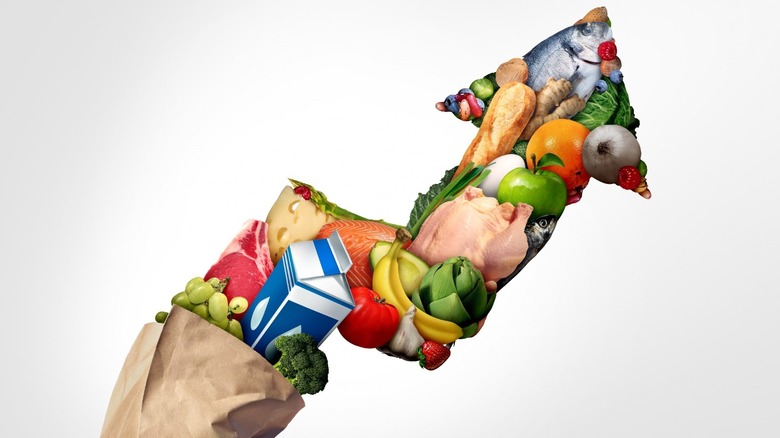Study Reveals The Most Expensive State For Groceries Right Now
Stories of how inflation has exerted financial pressure on Alabama and Wyoming have surfaced in the last few days. But those are only examples of a nationwide trend. But some states feel the pinch more acutely than others. Filterbuy, an air filter company, has taken it upon themselves to use data from the U.S. Bureau of Economic Analysis to determine which states spend the most on groceries.
Despite the opening of this piece, Alabama places at the 20th spot with an estimated amount of $3,126 spent on groceries per year per capita, which was 8.7% of their total spending. Wyoming was the 9th highest spender, using 9.2% of their total spending to cover an annual grocery bill per capita of $3,883.
However, the state that spends the largest amount on groceries is, according to Filterbuy, Hawaii. Hawaiians allocate 10.1% of their budget to spend $4,556 per capita throughout the year.
Why does Hawaii spend so much on groceries?
Filterbuy is content to simply state that Hawaii shells out the most money for groceries. However, the reason why the cost is felt so harshly in Hawaii is not just the latest omni-issue that is inflation. Food was already expensive in August, when The Travel noticed how much of one's budget eating in Hawaii takes.
Hawaii's food costs so much because so much of it is imported. In January 2021, Honolulu Civil Beat shared the estimate that 85% of the food eaten by Hawaiians came from outside the islands. Even though there are lots of fruit and vegetables that can be grown in Hawaii, the land itself is too expensive to be used at a needed scale.
This was true even back in 2015 when Seed Stock asked why the state that consistently did well on the locavore index imported most of its food. However, the local foods were grown in smaller farms and private gardens. Because there is a lack of state-grown food, most is imported which drives up the cost in the supermarket. That is during normal times. When the news is given to the eternal crises of the supply chain or inflation, the imports will weigh more heavily on Hawaii.

